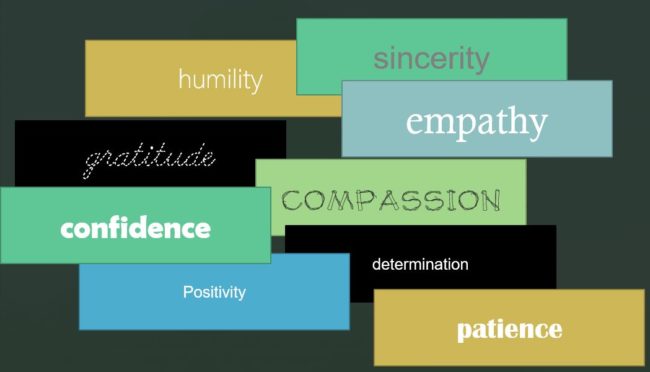10.01.21Using the TLAC Dean of Students Curriculum: A Report from Indianapolis’ Emma Donnan School
 Brittany Hargrove, TLAC Director of Advocacy and Partnerships, has been working hard to develop our new Dean of Students’ Curriculum and to support schools in using it to develop students’ socio-emotional learning. She recently interviewed two colleagues who’ve been piloting the curriculum:
Brittany Hargrove, TLAC Director of Advocacy and Partnerships, has been working hard to develop our new Dean of Students’ Curriculum and to support schools in using it to develop students’ socio-emotional learning. She recently interviewed two colleagues who’ve been piloting the curriculum:
As many of you know, we’ve been developing a Dean of Students’ Curriculum over the past year or two. With generous support from the Kern Family Foundation we’ve tried to develop a curriculum that can serve two functions: 1) allow schools to study character education proactively and positively and 2) allow Deans of students to teach and build student-knowledge rather than just giving consequences when young people engage in counterproductive behavior.
Emma Donnan Elementary and Middle School in Indianapolis, Indiana has been piloting our DOS Curriculum and we had an opportunity to interview Eddie Rangel and Matthew Rooney to learn from them and their experience. They’ve been focusing on teaching positive lessons schoolwide to help students come to terms with some of the pandemic’s emotional and psychological challenges. They shared these reflections on the first few weeks of school.
How does your school utilize the DOS Curriculum (responsive, proactive, therapeutic approach)? Please explain.
We used the DOS curriculum at the beginning of the year as our “Prep Academy.” After a year and a half of hybrid and virtual instruction, we welcomed Emma Donnan Middle School scholars back into our doors fully in-person for the first time. We knew (and continue to know) that the acclimation back to school is a challenge for many of our young people. Therefore, we used the DOS curriculum as some of the content for our first days back to school. As we practiced transitions, lunch, arrival/dismissal, and in-class procedures, teachers delivered intentionally selected DOS curriculum lessons to focus on the social-emotional implications of our return to school. We handpicked the lessons that best fit the needs of our school community, connected best to our school values, and helped set our scholars up for success with our focus areas and goals for the year. It also allowed our new teachers to practice executing strong lesson plans without the added academic pressures. But, most of all, these lessons’ reliance on peer and partner work helped our scholars build relationships with each other and our staff.
Since the beginning of the year, we’ve primarily used DOS curriculum lessons for proactive lessons in our Friday Advisory hour. During this time, each grade level executes a DOS lesson in homerooms, selected by the grade level chair, that best addresses specific cultural/social-emotional challenges from that grade level.
Which lessons have you used and what successes have come from those lessons?
We have best used the following lessons:
- Homework
- Facing Academic Obstacles
- Challenging Negative Self-Talk
- Setting and Achieving Your Goals
- How Failure Can Help Us Succeed
Our middle school scholars’ in particular feel the challenges the pandemic has created for them academically so we’ve tried to utilize lessons in the DOS curriculum that support scholars as they deal with the often overwhelming feeling of being “behind.” For example, we use the “Thought Traps”in the Challenging Negative Self-Talk lesson in our social work, Dean, and teacher-advisor conversations with scholars who are struggling with confidence. Our scholars have a strong aversion to failure, so the lessons from How Failure Can Help Us Succeed is embedded into our academic program as well.
We would love to hear about your experience welcoming students back to school. What are some of the bright spots in terms of students’ social-emotional needs?
Our scholars were very happy to return to school, as were our staff. One of the bright spots has been the ability to support scholars who needed access to counseling and mental health supports while at home, who now can take advantage of those programs in our school every day. Our teachers have done an incredible job of cultivating strong homeroom culture (since, due to the pandemic, our middle school scholars remain in one classroom throughout the day with teachers rotating). When we unveiled our Scholar Ambassadors program (a group of scholar leaders who support the school in a number of ways), we had over 60 applicants. Scholars want to make their school a better place and have their voices heard.
What are your areas of focus in terms of students’ social-emotional needs?
Our most important areas of focus are (1) developing strong teacher-student relationships, (2) building scholar confidence through providing specific academic feedback on how to grow, (3) building ownership through Scholar Ambassadors & other programs, (4) intentional ebullience initiatives to build a positive school culture, and (5) increasing family engagement through both proactive and responsive weekly goals.
We want to thank Eddie and Matthew for allowing us to learn from their school community!
If you are interested in learning more about or in piloting our Dean of Students Curriculum please visit: https://teachlikeachampion.org/dean-of-students-curriculum/.
